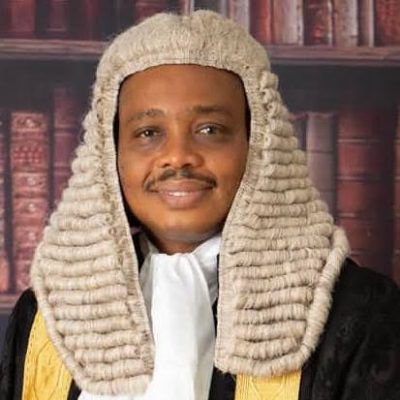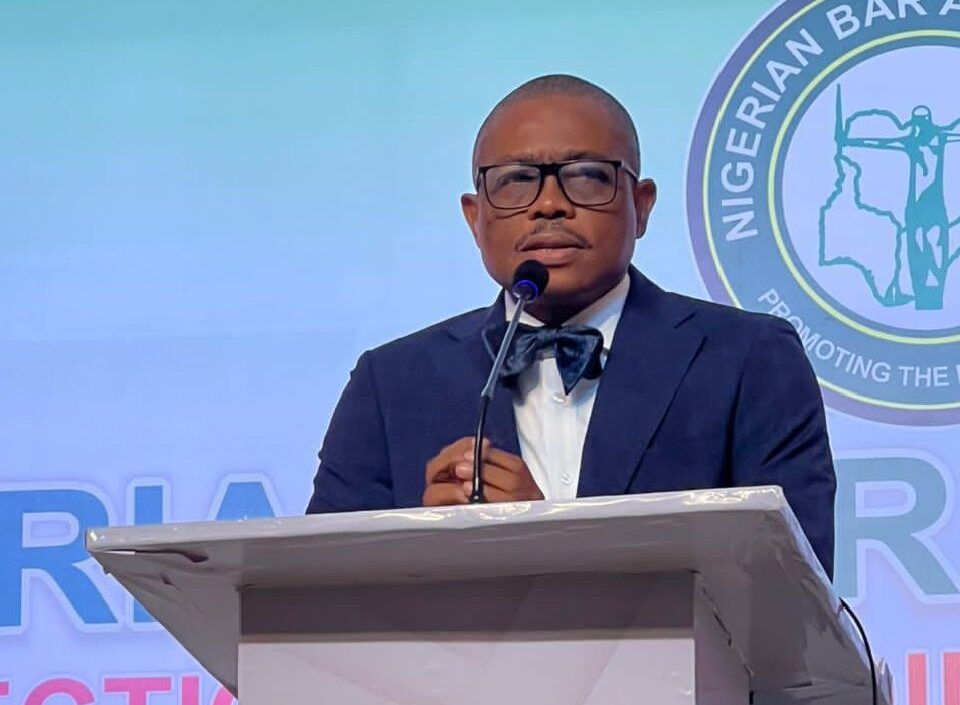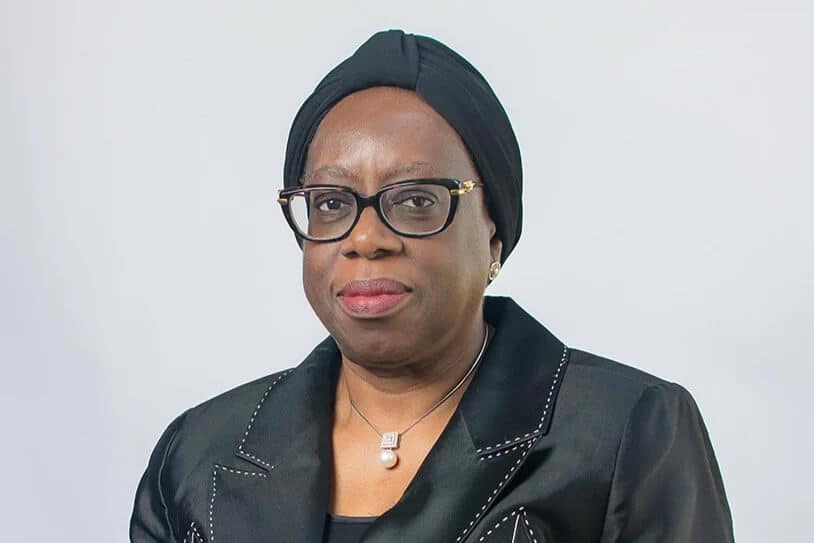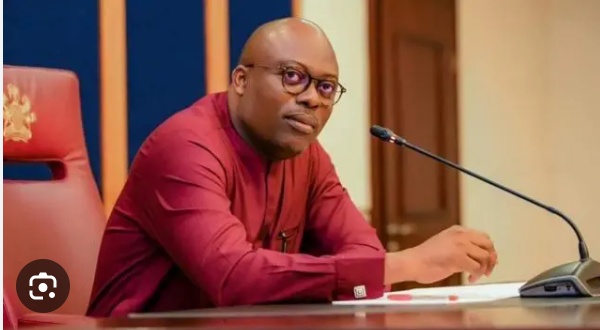JUDICIARY
EFCC displays CD of 51,933 pages, depicting content of Naira Marley s iPhone

The Economic and Financial Crimes Commission (EFCC) on Wednesday, displayed before a Federal High Court Lagos, virtual projection of a Compact Disc (CD) with 51,933 pages analysis of the iPhone of Azeez Fashola a.k.a Naira Marley.
The EFCC projected the virtual, through its second witness, Mr Augustine Anosike, a forensic analyst.
Anosike was still leading evidences in the trial of the defendant, who is facing an 11 counts charge, bordering on conspiracy, possession of counterfeit credit cards as well as fraud.
The anti-graft agency preferred the charges on May 14, 2019
Fashola, who sang the popular song: “Am I a Yahoo Boy”, was consequently, arraigned on May 20, 2019 before Justice Nicholas Oweibo, but he pleaded not guilty.
The court had accordingly, granted him bail in the sum of two million naira, with two sureties in like sum.
Trial had since commenced in the case and the second prosecution witness who began his testimony shortly before the COVID-19 lockdown in 2020, continued his evidence on Wednesday.
Our correspondent reports that the witness who resumed his testimony on Tuesday, concluded his evidence after the virtual display.
The Prosecution Counsel, Mr Rotimi Oyedepo, had told the court at the last adjourned date, that the prosecution only printed out hard copies of relevant portions of the exhibit, which it considered key to its case.
He had told the court that a full version of the total analysis was contained in a CD
The printed copies of the exhibit is labeled exhibit F while the CD containing full analysis is exhibit F1
Our correspondent reports that the court had granted prosecution leave to display the CD in a projector, in order to discharge its burden of proof as required by law.
Also on the last adjourned date, the witness had narrated, how different text messages and chats containing credit card details, were exchanged between the defendant and another recipient identified as Yadd.
When trial resumed on Wednesday, the witness, again reiterated portions of his earlier testimonies of Oct. 26, and indicated the visual spots of those testimonies, on the screen of the projected CD.
For instance, the witness showed visual displays of the credit card numbers, chats, as well as the incoming and outgoing short message services (SMS), which were analysed from the defendant’s iPhone.
The witness typically identified the “message trafficking” between the numbers +447426343432 and +447548061528.
On the whole, he told the court that the CD contained a total of 51,933 pages of the analysis conducted on the defendant device.
After the CD was displayed for about 45 minutes, the prosecutor then asked the witness to confirm if exhibits A and D, were vital elements of his analysis, and he replied in the affirmative.
Exhibit A is the Forensic Report Form, while exhibit D is the iPhone of the defendant.
Oyedepo then indicated to the court, that he had concluded examination of the witness, adding that whatever remained was left for his address
During cross examination, defence counsel Mr Olalekan Ojo, SAN, first sought leave of court to apply for a variation of its order and prayed that the court takes custody of the iPhone of the defendant which had been in custody of the prosecution.
According to him, the Federal High Court is well capable of keeping the exhibits in its custody, adding that it would also create ease for defence to apply for the exhibits if needed.
The court noted the requested.
Fielding questions from Ojo, the witness confirmed to the court that he had confined his analysis within the compass of his forensic reports.
When defence counsel asked the witness to confirm if his analysis had also covered possible number of persons that had used the said iPhone of the defendant, the witness replied that the number of persons were not ascertained.
Defence asked “As an experienced operative, are you aware that it is possible for a person other than the owner of a phone to have access to the use of that phone,”
The witness replied “That will only be possible where the owner grants access,”
When the witness was asked who supplied him with the password to the iPhone, he told the court that the defendant provided the password to the investigating operatives who consequently, transmitted same to him for his analysis.
He told the court that he only had knowledge of the period the iPhone was brought to him for forensics and not when it was taken from the defendant.
When asked to confirm the number on the iPhone the witness told the court that the registered number on the phone is iCloud +447426343432.
MeanwhIle, when defence counsel reminded the witness that he had told the court during examination, that the telephone number of the defendant was 07426343732, the witness replied that any sim can be inserted in a device.
When asked to confirm if there is a difference between the owner and user of a device, the witness answered “The names on a phone can be changed depending on what the owner chooses to use,”
Defence then asked the witness to show to the court from the two pages of his analysis summary, where he had indicated that there was a change of names in the device.
The witness replied that although it was not captured, the content of his report also reflects the content of the device as recovered therein.
Justice Oweibo adjourned trial until Nov. 30, Dec. 13, and Dec. 14.
According to the EFCC, the defendant committed the offence on different dates between Nov. 26, 2018 and Dec.11, 2018, as well as May 10, 2019.
The commission alleged that Fashola and his accomplices conspired to use different Access Bank ATM cards to defraud their victims.
It alleged that the defendant used a bank credit card issued to another person, in a bid to obtain fraudulent financial gains.
The EFCC also said that the defendant possessed counterfeit credit cards belonging to different people, with intent to defraud which amounted to theft.
The alleged offence contravenes the provisions of sections 1 23 (1) (b), 27 (1) and 33(9) of Cyber Crime (Prohibition) Prevention Act, 2015
JUDICIARY
Nigerian Bar Association President, Afam Osigwe SAN, Lauded For Transformative Leadership

From Hassan Taiye
The Nigerian Bar Association (NBA) President, Afam Osigwe, SAN, has been praised for his visionary leadership and transformative impact on the legal profession. Since assuming office, Osigwe has demonstrated a steadfast commitment to justice, human rights, and the rule of law.

According to Barrister Hamza N Dantani, Osigwe’s leadership has been marked by bold initiatives, fearless advocacy, and groundbreaking reforms. He has restored the NBA’s traditional role of holding leaders accountable and promoting the rule of law, challenging unconstitutional actions and human rights abuses.
One of the notable achievements of Osigwe’s presidency according to Hamza, is the repositioning of the Institute of Continuing Legal Education (ICLE). The introduction of a mandatory Continuing Professional Development (CPD) regime has elevated professional competence and aligned the Nigerian Bar with international standards.
“Osigwe has also been instrumental in promoting human rights and public interest litigation. He has spearheaded campaigns against arbitrary arrests, electoral malpractice, and anti-democratic legislation, and established regional litigation committees nationwide”
“The NBA President’s commitment to technology and innovation has also been noteworthy. The launch of the Digital Annual Practice License and the digitization of the Letter of Good Standing have marked a new era in transparency and efficiency within the profession”
He further stated that ” Osigwe’s administration has prioritized the growth and success of young lawyers. The Nigerian Bar Association–Young Lawyers Forum (NBA-YLF) has introduced tailored mentorship, support programs, and funding initiatives to address the challenges faced by young lawyers”
“The 2025 NBA Annual General Conference, organized under Osigwe’s leadership, was hailed as one of the most successful in the history of the Association. The conference equipped lawyers with practical strategies to navigate contemporary legal and societal challenges.”
“Engine’s leadership style has been described as inclusive, humble, and genuinely committed to serving the legal profession. His detribalized approach has earned him respect across regions, political divides, and professional ranks.”
He expressed optimising that ” As Osigwe continues to lead the NBA, his legacy is expected to leave a lasting impact on Nigeria’s legal landscape. His commitment to justice, human rights, and the rule of law has restored the NBA’s image as the nation’s conscience”.
JUDICIARY
Odinkalu Applauds CJN Kekere-Ekun for Sanctioning Errant Judges

Professor Chidi Odinkalu, a legal scholar and judicial reform advocate, has praised the Chief Justice of Nigeria (CJN), Justice Kudirat Kekere-Ekun, for her decisive action in addressing misconduct within the judiciary.
The National Judicial Council (NJC) recently sanctioned five judicial officers for professional breaches, including age falsification and other misconducts. The decisions were made during the NJC’s 107th meeting held on November 13 and 14, 2024.
Judges Sanctioned for Misconduct
Among those sanctioned were:
- Justice Chukwuemeka Chikeka, Chief Judge of Imo State, who was recommended for compulsory retirement effective October 27, 2021. Justice Chikeka was found to have falsified his date of birth, with inconsistencies noted between 1956 and 1958. He was also directed to refund salaries and allowances received after his official retirement date.
- Hon. Kadi Babagana Mahdi, Grand Kadi of Yobe State, was also recommended for compulsory retirement after discrepancies in his date of birth were discovered. Records showed three different birth dates, while his actual year of birth was determined to be 1952. The NJC found that he should have retired 12 years ago and ordered him to refund salaries and allowances received during this period.
- Justice G.C. Aguma of Rivers State High Court and Justice A.O. Nwabunike of Anambra State High Court were suspended from duties for one year.
Odinkalu’s Commendation
Reacting to the NJC’s decision, Professor Odinkalu commended the Chief Justice of Nigeria for her swift and decisive response.
“Madam CJN, Kudirat Kekere-Ekun, has acted swiftly on this matter of age falsification by the Chief Judge of Imo State. She has done the right thing the right way,” Odinkalu stated.
He expressed hope that this move would signal a new era of improved judicial standards under Kekere-Ekun’s leadership of the NJC.
NJC’s Commitment to Judicial Integrity
The NJC emphasized its zero-tolerance for misconduct, reiterating its commitment to upholding integrity within the judiciary. The council urged judicial officers to adhere strictly to professional and ethical standards.
The actions taken are seen as a bold step toward restoring public confidence in Nigeria’s judicial system.
JUDICIARY
Fubara Warns Judges on Conflicting Judgments

Rivers State Governor, Siminalayi Fubara, has called on judges and lawyers to avoid delivering conflicting rulings, which he says undermine justice and governance. His warning follows conflicting judgments that nearly disrupted the local government election in the state.
Speaking at the 2024/2025 Legal Year ceremony in Port Harcourt, Fubara criticized legal professionals who compromise their integrity for personal gain. He emphasized the sacred role of the judiciary in upholding justice and urged judges to remain steadfast in truth.
“You are the god that we are seeing. Your position is to stand and defend us,” Fubara stated, adding that those who compromise justice would face severe consequences, both legally and morally.
Fubara praised the Rivers State judiciary, particularly the High Court, for their support in maintaining stability despite external pressures. He acknowledged threats and assaults faced by judicial officers but encouraged them to remain resolute in their pursuit of justice.
In his sermon, Bishop Rt Rev Wisdom Budu Ihunwo echoed the governor’s concerns, highlighting the negative impact of conflicting judgments on Nigeria’s unity and governance. The bishop warned that those responsible for such actions would eventually face divine punishment.
Governor Fubara concluded by emphasizing the need for strong institutions to safeguard democracy and ensure societal prosperity.
-

 Uncategorized5 years ago
Uncategorized5 years agoFG, states urged to harness flooding for ranching, others with technology – Agbaje
-

 Headlines10 years ago
Headlines10 years agoBreaking: EFCC seals Borno House of Assembly, as Hon members take to their heels
-

 News11 years ago
News11 years agoNigeria Security Operatives Stage Manhunt For Homosexual Perpetrator
-

 News9 years ago
News9 years agoHow 21-year-old Girl fled community over accusation of lesbianism
-

 News10 years ago
News10 years agoYobe Gov Moves Against Deputy
-

 Opinion7 years ago
Opinion7 years ago7 signs she has friend zoned you
-
Technology4 years ago
Online job placement company headhunts women
-

 Headlines10 years ago
Headlines10 years agoBorno Dep Gov Abducts Another Church Leader






